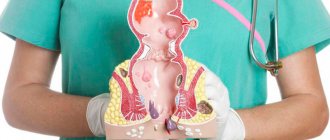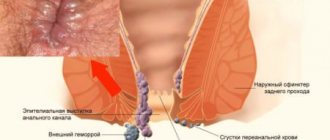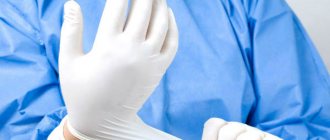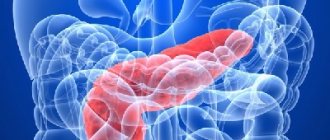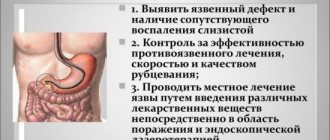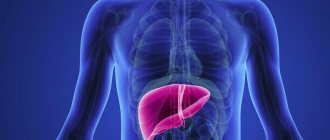Effective treatment of coloproctological diseases at the University Clinic of Moscow State University. M.V. Lomonosov.
- Advantages
- Price
- Reviews
- Diseases
- Ask a Question
- Doctors
- Contacts
- Scale for assessing the level of anal (fecal) incontinence
Advantages
- High-tech diagnostic equipment
- The latest medical and surgical equipment
- Application of the latest chemotherapy and radiotherapy methods
- Preference to minimally invasive (laparoscopic) interventions - return to normal life a few days after surgery
- Treatment of any stage of cancer
- Multidisciplinary team that ensures selection of optimal treatment and continuous monitoring of the patient
What is coloproctology?
Everything that a person eats daily is digested in the stomach and small intestine, and then excreted through the terminal sections of the intestine (sections of the large intestine and rectum are involved in the formation of feces). Everyday stress on these organs, dietary errors and many other reasons sometimes lead to diseases or contribute to the manifestation of genetically determined conditions. A separate branch of medicine within which diseases of the large intestine, rectum, anal canal and anal-coccygeal region of the perineum are studied and treated is coloproctology.
In what cases should you seek help from a coloproctologist?
The symptoms that you should pay attention to and contact a proctologist are the following:
- itching, discomfort and unpleasant sensations in the anus;
- pain in the rectum or perineum;
- feeling of volume formation;
- bleeding;
- discharge of mucus or pus from the anus.
In some cases, the use of additional research methods, such as anoscopy, proctoscopy, sigmoidoscopy, is required. For this you need to consult a proctologist
. These studies allow you to examine the intestine from the inside, identify pathological changes, their stage, the nature of the process and choose the necessary individual method of treatment: conservative, minimally invasive or surgical.
Subsections of coloproctology
- Emergency proctology - treatment of rectal bleeding, injuries of the rectum and perianal area.
- Planned proctology. The most popular assistance provided by coloproctologists in Moscow is the treatment of hemorrhoids, anal fissures, constipation (in case of pelvic floor prolapse), anal polyps and condylomas, correction of the epithelial coccygeal tract, as well as surgical treatment of paraproctitis and rectal fistulas. According to various sources, 20-30% of the population has hemorrhoidal disease, half of whom require mandatory treatment from proctological surgeons.
- Oncological proctology. Treatment and operations for colorectal cancer (collective name for colon and rectal cancer). The demand for the services of proctologists-oncologists is increasing every year, as there is a statically significant increase in malignant diseases of the colon, sigmoid and rectum. Among the total number of cancers, it ranks 2nd among women (after breast cancer) and 3rd among men (after lung and prostate cancer). Over the past 2 decades, colorectal cancer has moved from sixth to third place in the list of the most common tumors!
Is it necessary to do an enema before a proctologist?
Preparing for a visit to a coloproctologist involves both following a diet and preliminary cleansing of the intestines from feces. You can do this in two ways:
- using laxatives. This method allows you to gently and painlessly release the rectum. But the patient is not recommended to select a laxative on his own - it should be prescribed by a supervising doctor (proctologist or therapist). In addition, there are pathologies in which the use of laxatives is prohibited. In this case, it is necessary to cleanse the intestines with an enema;
- using an enema. The patient must undergo two procedures: in the evening before the visit to the coloproctologist and in the morning on the day of the examination. For an enema, a half-liter Esmarch mug is used, which is filled with warm, purified (boiled) water. After introducing the liquid, you need to keep it inside for 7-10 minutes, then go to the toilet. Enemas also have contraindications: they should not be used for rectal bleeding.
When making an appointment with a coloproctologist, you need to check with the doctor what restrictions should be followed in order to prepare for the visit. The specialist will give recommendations taking into account the individual characteristics of the body, identified symptoms and the patient’s current well-being.
How do we treat?
Treatment of proctological diseases does not always mean long hospitalization and major operations.
Many problems:
- hemorrhoids at any stage;
- anal fissures;
- acute thrombosis of hemorrhoids;
- aesthetic procedures for the removal of condylomas;
- excision of the epithelial coccygeal duct
- can be solved on an outpatient basis, using modern techniques of minimally invasive proctology (using an ultrasonic scalpel, radio wave scalpel, diode laser, etc.).
Doctors of the University Clinic of Moscow State University. M.V. Lomonosov at work
At the appointment, the proctologist, in addition to a detailed survey, must conduct a digital examination of the rectum. This simple method is very informative for studying the condition of the intestinal mucosa and pathological formations of pararectal tissue in the immediate vicinity of the anal canal. The examination is complemented by anoscopy or sigmoidoscopy. Using a device equipped with an optical system, the doctor examines the condition of the rectal mucosa and part of the sigmoid colon. The method allows you to diagnose tumor formations, changes in the mucosa, including those with UC (ulcerative colitis) and Crohn's disease, visualize polyps and foreign bodies. At the same time, minor bleeding can be eliminated by cauterization, small polyps and foreign bodies can be removed.
If necessary, a colonoscopy with targeted biopsy of suspicious areas may be prescribed to examine the entire colon. To clarify the picture of the disease, ultrasound examination of the pelvic and abdominal organs, transrectal ultrasound, X-ray examination and other methods of laboratory and instrumental diagnostics are also used.
In our clinic it is possible to receive a full range of medical care for any proctological disease. If necessary, to treat your problem, in addition to the proctologist, gastroenterologists, dermatologists, gynecologists, endoscopists, etc. will be involved. Colonoscopy is also performed here with the examination of biopsy samples; you do not have to travel from one institution to another to conduct research. All diagnostic and therapeutic procedures are carried out in one center. You can make an appointment with a proctologist and get a competent consultation from a proctologist in Moscow on the same day. The appointments are conducted by doctors and candidates of science with many years of experience, who have thousands of successful operations on the abdominal, pelvic and perineal organs.
Cost of treatment
Free treatment under compulsory medical insurance policy
A type of social insurance for citizens of the Russian Federation, which provides guarantees of free medical care in the detection of surgical diseases.
Quota treatment (VMP)
Providing medical care for the most severe diseases of the gastrointestinal tract, requiring the mandatory use of expensive instruments and/or the use of complex surgical techniques.
Treatment on a paid basis
It assumes the possibility of receiving medical care for any surgical disease, regardless of the presence of a compulsory medical insurance policy, without the need to complete additional documents and obtain a quota, for citizens of all countries of the world.
The most common diagnoses from a proctologist
Haemorrhoids
It develops when the veins of the rectum are overstretched as a result of increased pressure in this area, impaired venous outflow, and inflammatory processes. There are internal, external and mixed hemorrhoids; acute and chronic; 1-2-3-4 stages.
Anal fissures
It is a small but painful bleeding rupture of the rectal mucosa. Occurs as a result of frequent constipation or mechanical injuries. Without proper treatment, the fissure can fester over time and cause the development of paraproctitis, or “grow” into rectal cancer.
Thrombosis of hemorrhoids
A common complication of hemorrhoids. A thrombus forms in the cavernous plexuses of the rectum. Causes pronounced, unbearable pain and a sensation of a foreign body in the anus. Requires urgent removal of the thrombosed area.
Anal polyps
These are benign formations, which are not difficult to remove if the polyps are single. Multiple formations require the immediate participation of a proctologist. Radio wave or laser surgery devices are used to eliminate polyps.
Anal condylomas
The cause of their appearance is HPV (human papillomavirus). A large number of condylomas can cause a lot of inconvenience to the patient. It is difficult to completely defeat the disease, so complex treatment is prescribed, including drug therapy and surgical methods of excision of condylomas.
Anal fringes
These are fuzzy formations around the anus. One of the types of complications of hemorrhoids. In most cases, radio wave or laser removal is performed in 1 procedure.
Cost of services
Surgical treatment of the sigmoid and rectum
| Service | Price |
| Excision of anal fissure | Cost: 20,000 rub. |
| Excision of external rectal fistula | Cost: 30,000 rub. |
| Removal of hemorrhoids | Cost: 20,000 rub. |
| Removal of polyp of the anal canal and rectum | Cost: 15,000 rub. |
| Resection of the sigmoid colon | Cost: 36,200 rub. |
| Resection of the sigmoid colon using video endoscopic technologies | Cost: 54,050 rub. |
| Robot-assisted resection of the sigmoid colon | Cost: 200,000 rub. |
| Nerve-sparing laparoscopic-assisted resection of the sigmoid colon | Cost: 50,000 rub. |
| Combined resection of the sigmoid colon with resection of adjacent organs | Cost: 50,000 rub. |
| Extirpation of the rectum | Cost: 40,000 rub. |
| Extirpation of the rectum using video endoscopic technologies | Cost: 50,000 rub. |
| Abdominal-anal resection of the rectum with elimination of the rectovaginal fistula, suturing of the vaginal defect | Cost: 45,000 rub. |
| Anterior rectal resection using videoendoscopic technologies | Cost: 50,000 rub. |
| Low anterior rectal resection | Cost: 45,000 rub. |
| Intersphincteric rectal resection | Cost: 45,000 rub. |
| Robot-assisted rectal resection | Cost: 220,000 rub. |
| Combined rectal resection with resection of adjacent organs | Cost: 45,000 rub. |
| Excision of the epithelial coccygeal duct | Cost: 20,350 rub. |
| Mesorectumectomy | Cost: 15,000 rub. |
| Reconstruction of the esophageal-intestinal anastomosis for scar deformities that are not subject to endoscopic treatment | Cost: 20,000 rub. |
| Reconstruction of esophagogastric anastomosis in severe reflux esophagitis | Cost: 50,000 rub. |
| Excision of neoplasms of the perianal region and anal canal | Cost: 15,000 rub. |
| Autopsy of acute purulent paraproctitis | Cost: 16,000 rub. |
| Excision of subcutaneous-submucosal fistula of the rectum | Cost: 15,000 rub. |
| Excision of transsphincteric fistula of the rectum | Cost: 20,000 rub. |
| Excision of extrasphincteric fistula of the rectum | Cost: 20,000 rub. |
What procedures does a proctologist perform?
The coloproctologist examines the patient, conducts the necessary instrumental examination, and also performs a number of therapeutic procedures.
These include:
- infrared photocoagulation;
- latex ligation of hemorrhoids;
- radio wave therapy and others.
The doctor selects treatment methods taking into account the diagnosis, the current condition of the patient, and the characteristics of his body. Most modern procedures are minimally invasive - performed through small incisions and do not affect healthy tissue. As a result, hospitalization of the patient is not required and rapid tissue healing is ensured.
Diseases treated by a proctologist
In his practice, an intestinal specialist encounters many diseases.
Their list is quite wide, however, the most common pathologies are the following:
- Polypous growths;
- Intestinal injuries;
- Removing foreign bodies from the intestines;
- Rectal prolapse;
- Parasitic infestations;
- Anal fissures;
- Colitis;
- Cancerous formations;
- Proctitis;
- Paraproctitis.
Mandatory visit to the proctologist: when is it necessary?
You should not assume that rectal diseases are something exclusive that affects a small number of people. These pathologies are quite common, especially among the adult population. Their occurrence is influenced by a number of predisposing factors affecting the body.
Therefore, it is necessary to see a specialist if:
- There is excess body weight.
- The woman is in the premenopausal period, has entered it, or has already completed menopause.
- If circumstances force a person to remain in a sitting position for a long time. For example, professional costs.
- If you have previously undergone surgical interventions aimed at removing hemorrhoids.
- If a woman has entered the last trimester of pregnancy or has recently given birth to a child and is experiencing symptoms of hemorrhoids.
- If any close relatives are diagnosed with bowel cancer, and the person himself has crossed the 40-year mark.
If nothing bothers a person, then this is still not a reason to refuse preventive visits to a proctologist. The fact is that most serious intestinal diseases in the initial stages give rather meager symptoms.
Where to study to be a proctologist
What a proctologist does is available only to a specialist with a completed higher medical education.
After 11 years of schooling, the applicant must enter a medical university in one of the areas:
- "Pediatrics".
- "Healing."
The duration of training is six years. After training, the young doctor must enter residency in the field of Proctology, where he will study for two years.
The profession of a proctologist means that every five years a specialist confirms his level of qualifications. If he does not fulfill this condition, he loses the opportunity to perform his duties. To advance your career, it is recommended to participate in conferences, write scientific articles and attend additional courses.
